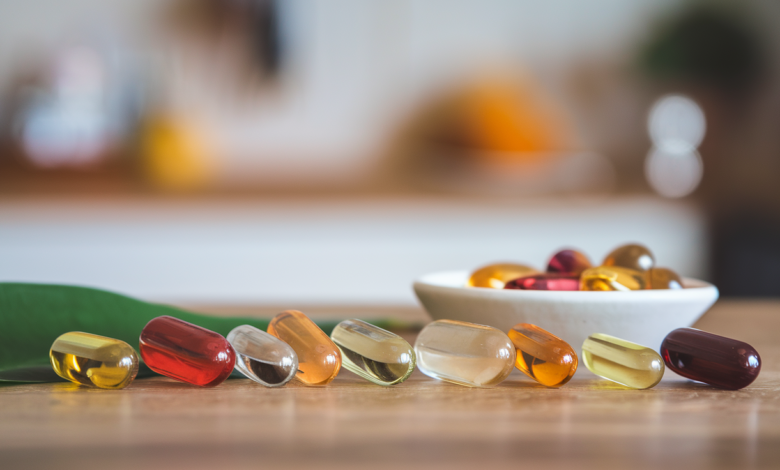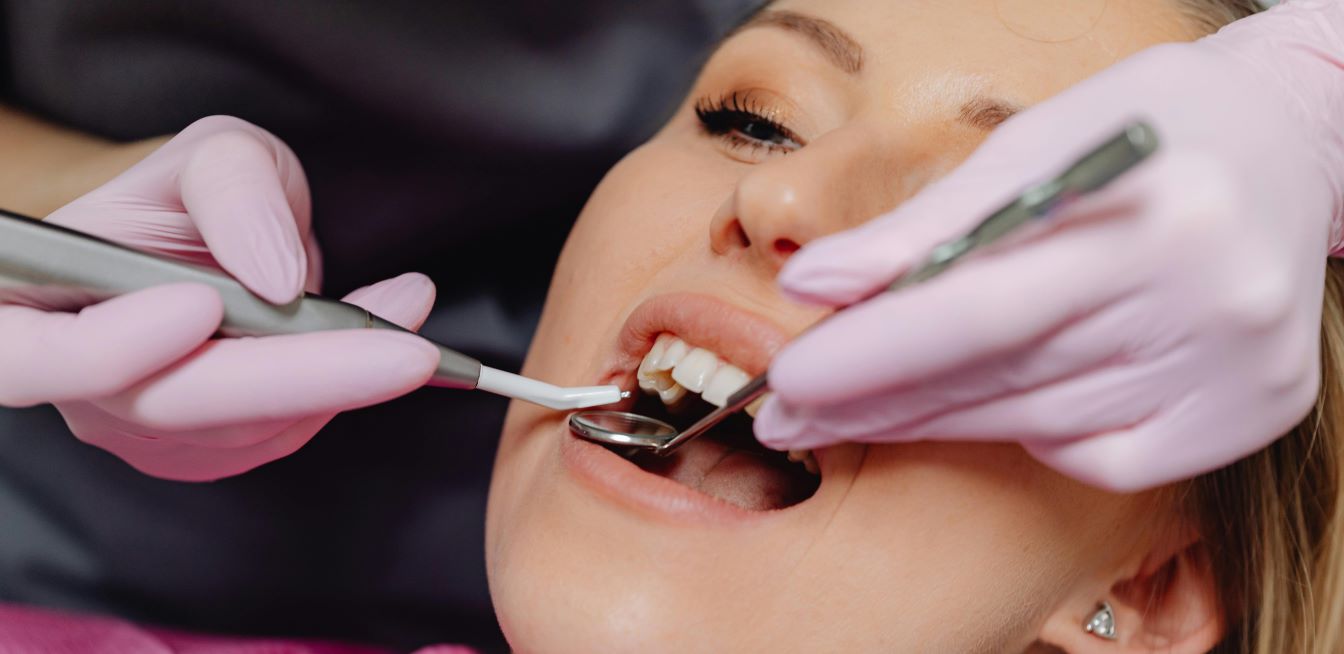The Best Vitamins for Oral Health: A Comprehensive Guide

Maintaining excellent oral health goes beyond brushing and flossing. The vitamins and minerals you consume play a crucial role in keeping your teeth, gums, and overall mouth in optimal condition. For a strong and healthy smile, it is essential to understand which vitamins support your oral health and how to incorporate them into your daily diet. In this article, we will dive into the best vitamins for oral health, how they benefit you, and ways to ensure you’re getting enough of each one.
Why Vitamins Are Essential for Oral Health
Our bodies rely on vitamins to regulate many functions, including those related to oral health. Deficiencies in certain vitamins can lead to oral problems such as gum disease, tooth decay, bad breath, and inflammation. By ensuring adequate intake of specific vitamins, we can prevent these issues and promote a healthier mouth environment. Vitamins help strengthen tooth enamel, support healthy gums, fight bacteria, and promote healing.
Vitamin C: The Protector of Gums
One of the most important vitamins for oral health is Vitamin C. Known for its powerful antioxidant properties, Vitamin C helps repair tissues, regenerate gums, and reduce inflammation. It plays a crucial role in the production of collagen, a protein that supports the structure of teeth and gums.
Without enough Vitamin C, gums can become inflamed and bleed easily, which is a common symptom of gingivitis and periodontitis. It can also lead to slow wound healing, which is detrimental to your oral health when infections arise. Consuming Vitamin C-rich foods like citrus fruits, strawberries, kiwi, and green leafy vegetables is key to maintaining healthy gums.
Best Sources of Vitamin C:
- Citrus fruits (oranges, lemons, grapefruits)
- Strawberries
- Bell peppers
- Spinach and kale
- Broccoli and Brussels sprouts
Vitamin D: Enhancing Calcium Absorption for Strong Teeth
Vitamin D is crucial for oral health because it helps the body absorb calcium, which is a vital mineral for healthy teeth and bones. Adequate calcium levels protect teeth from becoming weak and brittle. Without Vitamin D, teeth are more vulnerable to decay and other dental issues. In addition, Vitamin D plays a role in reducing inflammation in the gums, thus supporting overall gum health.
For those who don’t get enough sunlight (the body produces Vitamin D when exposed to sunlight), it’s important to consume foods fortified with Vitamin D or take supplements. Fatty fish, fortified milk, and egg yolks are excellent sources of this vitamin.
Best Sources of Vitamin D:
- Sunlight exposure (about 10-30 minutes daily)
- Fatty fish (salmon, mackerel, tuna)
- Fortified dairy products (milk, yogurt)
- Egg yolks
- Supplements (if necessary)
Calcium: The Building Block of Teeth
Calcium is the most well-known mineral when it comes to oral health. It forms the building blocks of your teeth and jawbone. Without sufficient calcium, your teeth can become weak, leading to cavities and other dental problems. Calcium also helps keep your jawbone strong, supporting your teeth and preventing tooth loss.
Dairy products are the most common sources of calcium, but there are plenty of plant-based alternatives for those who are lactose intolerant or follow a vegan diet. Incorporating calcium-rich foods into your diet will keep your teeth strong and resistant to decay.
Best Sources of Calcium:
- Milk, cheese, and yogurt
- Leafy greens (kale, collard greens)
- Almonds
- Tofu and fortified plant-based milk (almond, soy)
- Sardines and salmon (with bones)
Vitamin A: Supporting Saliva Production
Vitamin A plays a crucial role in maintaining oral health by supporting saliva production. Saliva is essential for cleaning away food particles and bacteria, preventing dry mouth, and ensuring that gums remain healthy. A lack of saliva can lead to a higher risk of tooth decay and gum disease.
Vitamin A also helps maintain the mucous membranes, keeping the inside of the mouth in good condition. Foods rich in beta-carotene, such as carrots, sweet potatoes, and leafy greens, are excellent sources of Vitamin A.
Best Sources of Vitamin A:
- Carrots and sweet potatoes
- Leafy greens (spinach, kale)
- Fish liver oil
- Eggs
- Fortified cereals
Vitamin K2: Preventing Tooth Decay
While Vitamin K2 is lesser-known in the realm of oral health, it plays a significant role in the process of moving calcium from the bloodstream into the bones and teeth. Vitamin K2 works in tandem with Vitamin D to strengthen bones and teeth, ensuring that the calcium you consume goes where it’s needed most—into your teeth to prevent tooth decay.
Vitamin K2 also helps prevent gum disease by promoting proper healing and reducing inflammation. This essential nutrient is commonly found in animal products and fermented foods.
Best Sources of Vitamin K2:
- Grass-fed meats
- Hard and soft cheeses
- Egg yolks
- Natto (fermented soybeans)
- Chicken
B Vitamins: Protecting Against Mouth Sores and Inflammation
The B vitamins, particularly B12 and B9 (folic acid), are essential for preventing mouth sores, reducing inflammation, and supporting overall oral health. A deficiency in B vitamins can lead to issues like glossitis (inflammation of the tongue), sores, and other discomforts within the mouth.
Folic acid plays a particularly important role in maintaining gum health and preventing gingivitis, while Vitamin B12 helps regenerate tissue and aids in the production of red blood cells, preventing anemia, which can contribute to oral health problems.
Best Sources of B Vitamins:
- Lean meats (chicken, turkey)
- Eggs
- Legumes (beans, lentils)
- Fortified cereals and grains
- Spinach and broccoli
Zinc: Fighting Bad Breath and Bacteria
Zinc is a vital mineral for maintaining oral health, especially in fighting off bad breath (halitosis) and bacterial infections. It helps reduce plaque buildup and has antibacterial properties, which protect the mouth from harmful bacteria. Zinc also supports healthy gums by reducing inflammation and promoting wound healing.
Zinc can be found in a variety of foods and can also be taken as a supplement. Adding zinc-rich foods to your diet can help keep your breath fresh and your mouth free from bacteria.
Best Sources of Zinc:
- Oysters
- Red meat and poultry
- Beans and lentils
- Nuts and seeds (pumpkin seeds, sesame seeds)
- Whole grains
Ensuring a Balanced Diet for Optimal Oral Health
While brushing and flossing are essential parts of oral hygiene, nutrition plays an equally critical role in maintaining a healthy mouth. Incorporating the right vitamins and minerals into your daily diet can improve gum health, strengthen teeth, and prevent oral issues such as cavities, gum disease, and tooth decay.
Eating a balanced diet that includes a wide variety of nutrient-rich foods is the best way to ensure you’re getting the vitamins and minerals needed for oral health. Supplements may also be necessary in cases of deficiency, but it’s always recommended to consult a healthcare professional before beginning any supplementation.
By focusing on these key vitamins—Vitamin C, Vitamin D, Calcium, Vitamin A, Vitamin K2, B Vitamins, and Zinc—you can maintain excellent oral health and enjoy a radiant smile.


